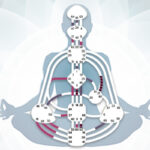In modern psychology there is a section that studies the art of complex negotiations, debates, disputes. It is called conflictology. And since in our world many issues are resolved precisely in the process of negotiations, the knowledge that this science gives us is in great demand. Some negotiators behave softly, tactfully, take into account the interests of the opposite side and at the same time do not deviate from their position. Others, on the other hand, do not hear anyone but themselves and are by no means ready to adapt to their opponent. There are those who do not have their own position at all and are guided exclusively by the interests and wishes of the opposite side.
In negotiations, discussions and conflict situations, each negotiator plays a specific role. Sometimes at the same negotiating table there are people who do not even try to come to an agreement, but only impose their opinion and their position on each other. And in such situations, as a rule, protracted conflicts begin.
In this article, we will look at this issue from the point of view of Human Design, modern knowledge that has recently become more and more popular. The essence of this system lies in the fact that each of us comes into this world with certain talents and vulnerabilities, and all this is displayed in the so-called Bodygraph. And in order to live harmoniously and happily, as well as be able to properly defend our position in negotiations, we definitely need to know our strengths and weaknesses.
Why people tend to argue and impose their point of view on others
Depending on the nuances of the structure of the Bodygraph, some of us are inclined to actively argue and impose our point of view on other people, while others, on the contrary, are ready to listen to different points of view and conduct negotiations politely, tactfully and impartially. Technically, this question is answered by the so-called Crown Center. What it is?
According to Human Design, we all consist of nine energy Centers, each of which is responsible for a specific area of our life. At the very top, right in the area of our head, is the Crown Center. This is the place where our curiosity and inspiration to study certain issues are born. This Center can be in two different states: definite and indefinite.
People with a certain Crown Center tend to have a clear opinion, which they are not shy about voicing during disputes and negotiations. In addition, they are interested in specific topics and do so in a strictly fixed way.
Below Crown we have Ajna Center, which is responsible for our ability to conceptualize and construct our own theories. It can also be definite or indefinite.
As for people with an uncertain Partial and Ajna Center, they, as a rule, are easily influenced by others and tend to change their point of view.
If you still do not know if you have defined Crown and Ajna Centers, follow the link and calculate your Bodygraph right now. And then return to this page and look at the picture.
If a person has Crown – Ajna ligament, this suggests that he has his own fixed opinion on most issues. And just the same such people are most often inclined to argue and impose their point of view on everyone, believing that there are only two opinions: their own and the wrong one. Sometimes they even look a little down on their interlocutors. Interestingly, such people prove to others that they are right quite easily. Or, rather, they impose their innocence. But at the same time, the rest of the participants in the dialogue may feel extremely uncomfortable and agree with professional disputants only because they are unable to cope with the powerful pressure of the energy that rushes on them.
Another option is also possible: when several carriers of a certain bundle of Crown – Ajna can gather in one room at once. In this case, most likely, the participants will insist on their own opinion to the utmost, and they will not be able to come to a consensus at all.

Are these arguments productive? Obviously not. Is it possible for carriers of Crown – Ajna Center ligament to learn to argue productively and effectively? You can and how! And for this, there are several simple tricks that should be applied in practice every day.
The art of productive dispute on the example of Crown and Ajna Center
So, if you are the owner of a certain bundle of Crown – Ajna, here is an instruction on the art of disputes. She will help you start arguing with others in a more peaceful and productive way: without reproach, humiliation, or imposition of your position.
Use cold arguments to support your point of view.
What are cold arguments? These are statistics, facts, research results, calculations and other data with which it is difficult to argue and which at the same time characterize your point of view as reasonable and promising.
Listen carefully to your opponents and never interrupt them.
Tactfulness and delicacy are essential ingredients for successful negotiations and productive disputes. This means that even if your opponent says things you disagree with, you shouldn’t interrupt him. In addition, it is always very important to listen to the opposite point of view completely. After all, perhaps it is at the very end that your opponent will bring up an argument with which you agree.
Don’t impose your position.
If your opponents disagree with your opinion, you should not prove to them that you are right, as they say “through force”. In the end, they have the right to have their own point of view, which in turn can be very different from yours. And it is even interesting if there is an opinion that does not fit into your picture of the world, but at the same time may be quite reasonable and objective. This means that you and your opponent have something to share with each other!
Follow Strategy and Credibility.
These two tools will help you not only make the right decisions, but also behave as correctly as possible during disputes and meetings.
So, for example, if you are Projector and your Strategy is to wait for an invitation, then in the process of discussing certain issues, you should not take the initiative into your own hands, but calmly wait until you are given the floor.
If you are Generator and your Strategy is to Respond, you need to keep a close eye on what is happening in anticipation of what will resonate with you.
If you are Manifestor, then you can choose the moment to express your opinion, but it is worth informing others about this in advance.
And if you are Reflector, then you need to wait for the full lunar cycle in order to understand which questions are important to you and which are not.
Here are some simple steps that you can try in practice in the very near future!
If you liked this article and would like to continue getting to know your nature and receive practical recommendations, study your Bodygraph and make amazing discoveries about yourself and your loved ones! If you have just started researching this topic, there is still a lot of new and interesting things to learn!
A full decoding of your chart in pdf format is available here.



